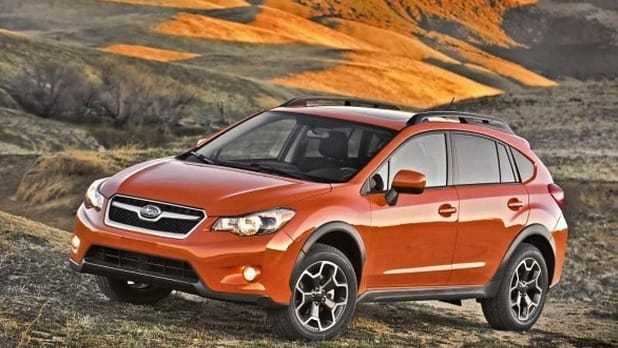How does Leasing work

- How does leasing work? Everything you need to know
How does leasing work? Everything you need to know
In Switzerland, leasing is a popular way to drive a car without making a large investment. However, few contracts are as misunderstood as the leasing relationship.
Opinions about leasing vary widely. Nevertheless, almost half of the new cars on Swiss roads are now leased. Leasing offers a way to finance a car, but it comes with certain conditions and obligations - and it's important that you're aware of them before you decide to do so.
Whether you're just thinking about leasing or you've already decided, you should educate yourself on the subject so you know what you're getting yourself into. That is why, in this article, we will demonstrate how leasing works and explain everything you need to know.
Car leasing in Switzerland: These are the requirements
Even though a leasing contract is not the same as a loan agreement, leasing companies require some security up front in order to approve the lease.
Quick overview of the requirements:
- Credit check
- The last three pay slips
- Residence in Switzerland
- Residence permit in Switzerland
The requirements are set by the lessor, in most cases a credit institution. These requirements relate to your creditworthiness, which indicates how creditworthy you are. In Switzerland, strict requirements apply to the granting of loans and leases.
The lessor must comply with these requirements and ensure that you do not become overindebted as a result of the lease. Usually, the bank will check your payment record by means of a debt collection register extract and financial information on databases such as the Central Office for Credit Information or Teledata. You also need to have a permanent job and an income that corresponds to the leasing, which you prove with the pay slips of the last three months.
In addition to the financial requirements, you need to be resident in Switzerland and have Swiss citizenship, or a B residence permit or C settlement permit. During the leasing period you are the legal user of the car, but not its owner. However, you agree to take responsibility for the car and take care of it to the best of your knowledge and belief.
In addition to the minimum legal requirements, leasing companies may additionally use their own more stringent criteria to determine whether or not to offer you a lease.
When is leasing worthwhile?
Leasing is worthwhile in two scenarios in particular:
- you don't want to or can't immediately spend a large sum of money.
- you want to be well covered for all eventualities in the monthly all-inclusive format.
Leasing a car offers you a few distinct advantages over buying it. The main reason why more and more people choose to lease is that leasing is cheaper in the short term. Apart from the down payment, which in most cases has to be made, as a lessee you do not need significant own capital. Thanks to leasing you can drive cars that you would otherwise have to save for a long time. Also, leasing lasts only a few years before a new car can be leased. So if you want to own the latest model every few years, leasing is an exciting alternative to buying a car (on credit).
All-in-one leasing, as offered by gowago.ch, is a supplement to leasing. Unlike normal leasing, All-in-one offers different packages to choose between. While All-in-one Light offers insurance and car service at over 300 locations in Switzerland, All-in-one Premium includes insurance, service, tires including change and storage, road tax and even the freeway toll sticker. What's more, lessees of this innovative mobility solution are even less tied down in terms of rental period and vehicle choice than with ordinary leasing. Thanks to monthly fixed rates, you can plan your budget and avoid unpleasant surprises. You can find out more about how Auto-Leasing All-in-one works here.
A classic vehicle purchase can quickly become very expensive. If the market value of a vehicle drops drastically due to unforeseen environmental factors (e.g. new technologies, new laws), with a classic purchase you bear the loss yourself. With leasing, on the other hand, you have the option of transferring this risk to the dealer. With every leasing contract a residual value is agreed upon. Thus, you never pay the full vehicle price during the term of the lease, but only the difference between the vehicle price and the residual value, plus interest costs.
So if your vehicle has a lower market value than the specified book value at the end of the contract period, you can return it without any worries and the dealer will bear the loss.
However, if the market value is higher than the residual value, you have the option to buy out the vehicle and resell it at market value. It is also possible to lease the vehicle with refinancing. Another advantage is that you do not have to spend the money you have saved in one go, you can relax and pay your monthly installment and make other investments with the money you have saved.
Another relevant factor is that leasing can be adapted to your life situation at any time. If you want a sporty car today, but within the next two years you want another one, you can easily change to a station wagon at the end of the lease, without the risk that your car will lose a lot of value.
This is how a leasing contract works
The leasing contract is not a specifically regulated type of contract in Swiss jurisdiction. Rather, the leasing contract is a mixture of a purchase contract and a rental contract. You enter into this contract as the lessee with the lessor, usually a credit institution.
Do I get the lease down payment back?
As a rule, you do not get back the down payment for your lease. This is because the down payment is not a deposit that you make as you would with a normal rental agreement. The down payment is an advance on your monthly lease payment. The higher your down payment, the lower the remaining amount, so you can benefit from lower monthly payments.
Can I terminate the leasing contract prematurely?
Yes, you can terminate your lease early. However, before you decide to do so, you should read your contract carefully and contact the leasing company.
The term of the lease will be adjusted if you terminate it, which can result in costs of several thousand francs. Be sure to discuss the conditions with a customer advisor or find out about possible alternatives to termination.
Early termination of the contract is usually the most expensive way to say goodbye to your lease. But don't worry; a suitable solution can (almost) always be found.
If you want to terminate the contract due to payment difficulties, for example, you should check whether you have taken out leasing insurance that may help you to bridge the installments. Otherwise, you can try to explain your situation to the leasing company and request a temporary stop payment. Instead of terminating the lease, you can also consider taking over the lease, which is usually much cheaper.
Buy the car out of the lease?
Whether you request an offer to buy your car out of the lease early depends on whether your leasing partner offers you this option. If this is the case, you can buy your leased car even if the leasing period has not yet expired.
The purchase price is the sum of the outstanding lease payments and the residual value of the car.
Normally, it is not possible to buy the car out of the lease until you have paid all the installments. You must therefore wait until the leasing contract has ended before you can request an offer to purchase the car at the end of your lease for the residual value.
Extend lease. Is that possible?
Yes, most lessors allow you to extend your lease. As a rule, you have to submit an application. However, the exact procedure is not uniformly regulated. It is therefore best to ask your leasing company directly whether and how you can extend your lease.
Strictly speaking, an extension does not extend your leasing contract, but only the leasing relationship between you and the bank. Your current lease will be terminated at the end of the leasing period.
For the "extension", you enter into a new, so-called follow-up lease agreement with the lessor. Since the car has already lost a lot of value by the end of the original lease, the rates of the follow-up lease are much lower than the rates of your previous lease.
So at first glance, the follow-on lease seems pretty tempting, right? However, keep in mind that while the rates are quite a bit lower, the ancillary costs will increase. Maintenance costs, in particular, will increase year after year. Once the car's warranty has expired, the risk of high, unexpected costs increases, which you will have to cover yourself. In this case, it can also be advantageous to take out an all-in-one lease. This way, you are completely protected against unexpected incidental costs and don't have to suddenly spend a lot of money on the maintenance of possible defects.
Return leased car early and lease a new one?
The term of a lease is agreed in advance between you and the lessor. A return of the leased car before the end of the contract and its replacement with a new car is usually excluded in private leasing contracts.
Theoretically, you can terminate the contract and lease a new car. However, if you terminate the contract early, you may incur large costs. Especially if you return the lease early or if the car is damaged, the loss of value of the leased car is very high, which is why it is rarely worthwhile to return the leased car and then lease a new one.
Car leasing with debt collection?
Getting a car lease with a debt collection is difficult. Leasing is a long-term financial commitment and the lessor is required by law to check your credit rating. If taking out a lease leads to your over-indebtedness, the leasing company may not offer you a contract.
How does the lease takeover work?
A lease takeover describes the transfer of a lease from the previous lessee to a new lessee. So with a lease transfer, you either take over someone else's current lease, or you transfer your existing lease to someone else.
While the existing lessee benefits from a low-cost alternative to early termination, the new lessee enjoys a payment-free lease with low rates as a result of the lease buyout.
Leasing takeovers are not uniformly regulated in Switzerland and there is basically no right to them. To find out more details and the individual conditions, you should therefore contact the lessor directly.
What is the composition of the leasing rate?
Each lease payment is made up of various elements, such as the vehicle price, the term, the down payment amount, the leasing interest rate, the number of kilometers and the selected residual value. The higher the vehicle price, the interest rate and the number of kilometers, the more expensive the monthly leasing rates will be.
The monthly lease payment includes ONLY the installment for the car - but to get on the road, you need additional services that are mandatory: comprehensive insurance. In addition, you also pay for the road tax, services, winter tires and the vignette. All-in-one from gowago.ch helps you keep track of all these costs with a single monthly bill, so you never have to worry about an unexpected bill again. You can choose between our three packages. And don't forget to plan your gas or electricity costs!
0% leasing: What is car leasing with no down payment?
The term "0 percent leasing" or "zero leasing" basically refers to a leasing contract in which you can expect no additional costs apart from the installments. Depending on the case, this can mean both interest-free leasing and car leasing without a down payment.
In the case of a no down payment lease, the lessor waives a down payment and still grants you comparatively favorable monthly installments. This is usually the case with used cars whose current lease is transferred to you.
Interest-free leases, on the other hand, are often special offers from car manufacturers for new cars. Be careful here, what sounds great on paper can also be a trick. One of the biggest factors for your wallet is not the interest rate itself, but the residual value of the car. Rogue leasing providers can manipulate a car's residual value to increase the monthly payment while lowering the interest rate. As a result, they may offer 0% leasing in their advertising, but this has no positive effect on your finances. In the case of such an offer, it is worth doing a thorough background check on the provider.
How does the leasing insurance work?
When you lease a car instead of buying it, as long as the lease contract runs, the car does not belong to you, but to the lessor. He wants to protect his property. With a lease, comprehensive insurance is mandatory. Comprehensive insurance is a combination of partial coverage and collision coverage. With it, all the benefits included in the partial cover insurance are covered, plus the damage you cause yourself.
If you lease a car, you usually need comprehensive insurance with an increased current value. Cars depreciate in value over time, and for new vehicles, the difference is most noticeable in the early years. With time value added insurance, the leasing company protects itself against such losses.
Note, however, that comprehensive insurance is not part of the leasing rate; it must be taken out additionally by the lessee. An exception are all-inclusive offers, in which additional services, such as the insurance of the vehicle, are already included. At gowago.ch, fully comprehensive insurance is included in every all-in-one package that you can take out separately.
The optimal leasing period
Your lease term is specified in months and you choose it primarily according to your needs. However, the financial aspect also plays a role in the search for an optimal leasing period. The longer the selected term, the lower the monthly installments.
However, you also pay interest for longer and the repair and maintenance costs increase the older the car is. At first glance, it hardly makes a difference whether you conclude a lease for 36 or 48 months.
The rates for 48 months are lower, which is why a longer term seems more favorable. On closer inspection, however, you realize that the total price of a 48-month lease can quickly be several hundred or even several thousand francs more expensive.
End of lease: What now?
When the term of your lease has expired, the lease is automatically considered terminated. There are various options available to you as to how you can now continue to drive. However, it is best to clarify which options are available to you after the end of the lease before signing the contract.
The lease return
Normally, the leased car is returned as soon as the lease is terminated. The lease expires automatically after the agreed term, so you do not have to give notice. You will be informed by the lessor early enough about the next steps and the handover process.
Unless otherwise agreed, the garage owner holds the exclusive right of repurchase and will take back the vehicle at the determined residual value.
Even minor scratches or functional limitations can greatly reduce the value of the car. Therefore, treat the car as carefully as possible during the entire running time and try to avoid excessive wear and tear.
Pay attention to the condition of the vehicle before handing it over and document any damage in detail. To avoid additional hassle, be sure to return the car on time and make sure that you fulfill all contractual requirements when you hand it over.
Keeping the car after leasing
To keep the car after the lease, you can request an offer to buy it or apply for a second lease. Most leasing contracts do not guarantee you the exclusive right to buy.
If the purchase is refused, you must return the car, otherwise you may buy it. The purchase price is calculated from the residual value and any fees that are due for the purchase. By buying the car, you become the sole owner of the car and end your contractual relationship with the leasing company.
Before buying, be sure to compare the residual value of the car with its market value and make sure you are getting a worthwhile deal. Also, be aware that the car's warranty usually expires after 3 to 4 years and you may face high maintenance and repair costs. You can learn more about lease return in this article.
Lease a new car after leasing
Your lease is over, the car returned, but you still need a vehicle? If you are interested in leasing a new car after the lease, there are several ways to get a lease again.
If you are looking for a favorable lease, you can ask your lessor if it is possible to continue leasing the previous vehicle by means of a follow-up lease agreement. The monthly installments of the follow-up lease will be significantly lower than your current installments.
If you want another car, you will probably sign a new lease. Your current lessor may allow you a discount if you stay with them. Of course, you may also look around for other providers and compare different offers.
If you are interested in a cheap and all-in-one offer, then get in touch with the cheap deals from gowago.ch now. The all-in-one leasing from gowago.ch offers you a flexible and cost-effective alternative to normal leasing.
How does it work at gowago.ch?
gowago.ch offers the largest selection of ready to drive cars at monthly prices in Switzerland, both new and used. So you are sure to find the right offer for you. Once you have found a car that you like, you can choose the conditions that fit your needs. 24 to 60 months, individual annual mileage and an advance payment that fits your budget. You can order all this conveniently online.
At checkout, you can specify who will drive the car, where you live, and enter all the information that gowago.ch needs to perform the necessary credit and creditworthiness checks. A gowago.ch consultant will book the car and prepare everything. Afterwards you can decide whether you want to pick up the car at the garage yourself or have it delivered to your home.
The price you see is the price you pay, because gowago.ch stands for absolute transparency. There are fixed prices and no hidden costs.
To make the leasing experience easier for you, you will be attended to by your personal contact person before and during the leasing process. The leasing bank of gowago.ch is Migros Bank, the insurance is taken over by Baloise. In addition, gowago.ch offers various all-in-one packages, so you are sure to find one that is tailored to your needs. From All-in-one Light, which covers the insurance as well as the car service, to All-in-one Premium, which also includes the car tires including change and storage, the car tax, an extended warranty as well as the freeway toll sticker, everyone will find the right package here.
Leasing-FAQ
What are the disadvantages of leasing?
Although leasing is relatively popular in Switzerland, it still has some disadvantages compared to buying and compared to car leases like the All-in-one from gowago.ch. A big disadvantage is that leasing is more expensive in the long run than buying, but still does not include additional services like insurance or maintenance. Also, with leasing you are bound for a long time and therefore cannot react flexibly to changing life circumstances.
Who pays for repairs in leasing?
As long as the repair is not covered by the manufacturer's or dealer's warranty, you will have to pay for the repair of the leased vehicle yourself. In case of damage due to an insured accident, the comprehensive insurance will cover it, but you are usually obliged to pay a deductible.
Is it possible to change the leasing rate?
No, the leasing rate can normally not be changed. It is always the same from the beginning of the contract until the end of the leasing period and is invoiced to you monthly.
What is covered by leasing?
A leasing contract only regulates the financial aspect of vehicle use. The mandatory comprehensive insurance, taxes and repairs are not included in conventional leasing. So you have to pay all additional costs out of your own pocket. This is somewhat different with the All-in-one from gowago.ch, in which all costs are already included.
Which cars are the cheapest to lease?
In general, the leasing rates for used cars are the lowest. Especially with lease acquisitions you can save a lot of money. The value of the vehicle has a great influence on the price of your lease. But don't forget that older vehicles sometimes have higher fuel consumption and lead to excessive maintenance costs.
Can leasing be deducted from tax?
No, in Switzerland you cannot deduct your leasing from your taxes as a private individual. In the case of a vehicle loan, however, you can deduct the interest in your tax return.
How is the residual value calculated?
The residual value of your vehicle indicates how much the car is still worth after the lease. As a rule of thumb, you can calculate that the leased car will lose about 20 percent of its value from the previous year. For example, if you lease a car for 48 months, the residual value at the end of the lease will be about 40 percent of the original price (0.84 = 0.4096).


